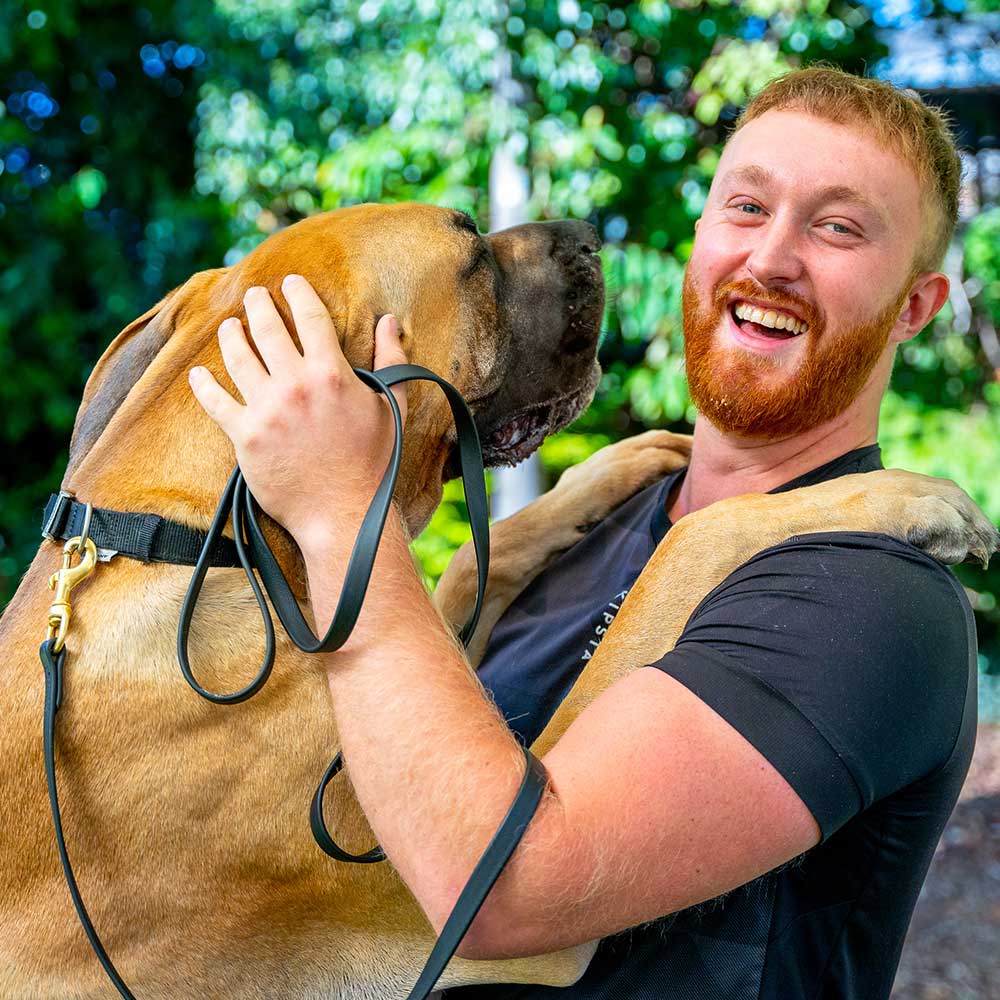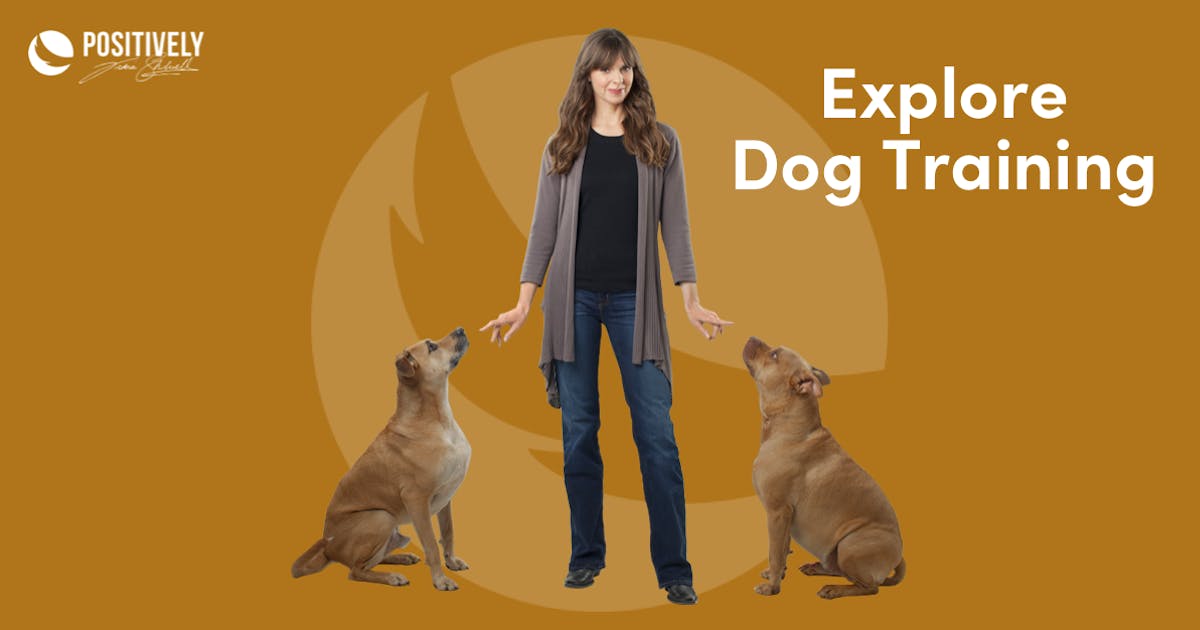The Ultimate Overview to Canine Training: Transform Your Pet's Actions
Reliable canine training is vital for fostering an unified connection between pets and their proprietors. The ins and outs of canine habits and the implementation of organized training methods play an important function in this process. By understanding the concepts of positive support, uniformity, and socializing, family pet owners can browse typical challenges that emerge throughout training. This overview not only intends to equip you with the necessary devices to transform your pet's behavior but additionally invites you to discover exactly how these foundational principles can cause a deeper link with your pet. What could be the primary step in this transformative journey?
Understanding Pet Dog Actions
Understanding pet dog actions is vital for reliable training and a harmonious connection between pet dogs and their proprietors. A pet's actions is affected by a mix of genes, setting, and experiences. Dog training. Recognizing these factors allows owners to tailor their training approaches to meet the individual needs of their family pets
Pet dogs connect largely through body language, vocalizations, and faces. For instance, a wagging tail can indicate excitement or happiness, while a tucked tail might signify fear or submission. Observing these hints allows proprietors to react suitably, enhancing favorable actions and dealing with unfavorable ones successfully.
Additionally, comprehending the social structure of dogs can provide insights into their behavior. Pets are pack pets, and they grow in a structured environment. Establishing clear boundaries and regular policies can avoid confusion and promote a complacency.
Furthermore, recognizing the all-natural reactions of canines, such as need to dig or chase, is vital. These impulses can be rerouted via proper outlets, such as play or workout. By thoroughly understanding these behavioral aspects, proprietors can cultivate a positive training experience, eventually bring about a well-adjusted and obedient canine buddy.
Important Educating Strategies
Effective canine training counts on a selection of essential techniques that can substantially boost the learning process for both the canine and the owner. One essential strategy is favorable support, which involves rewarding desirable habits with treats, praise, or playtime. This method motivates canines to duplicate the habits that bring about favorable end results, fostering a trusting relationship in between the pet and owner.
Another secret strategy is uniformity in commands and expectations. Utilizing the exact same spoken hints and hand signals assists the pet dog comprehend what is needed, minimizing confusion and promoting quicker knowing. Additionally, establishing clear borders and regulations is critical for reliable interaction.
Socialization is also a vital component of training. Exposing pets to various atmospheres, people, and various other pets assists them create appropriate social abilities and reduces stress and anxiety in unknown situations.
Finally, perseverance and timing are vital. Educating sessions must be regular but quick, making sure that the canine remains involved and receptive. By using these crucial methods, owners can develop a structured and favorable training experience that advertises excellent behavior and reinforces the bond with their canine buddies.
Developing a Training Set Up
Exactly how can a well-structured training timetable improve a dog's understanding experience? A training routine gives uniformity, ensuring that pets obtain routine, focused guideline. This predictability helps pets comprehend what is expected of them, enhancing their learning and enabling far better retention of commands and behaviors.
When developing a training schedule, it is important to take into consideration the dog's age, breed, and private temperament. Youthful young puppies may take advantage of much shorter, more regular sessions, while grown-up canines might love longer, much less frequent training periods. Including a range of tasks can additionally maintain the sessions engaging, avoiding monotony and advertising excitement for discovering.
In addition, organizing training sessions at specific times of the day can assist solidify a routine. For example, coupling training with daily walks or play can produce a favorable association with discovering. It is additionally essential to include time for reinforcement, such as deals with or appreciation, to compensate wanted actions promptly.
Last but not least, flexibility is crucial. While uniformity is vital, being versatile to the dog's state of mind or energy level can improve their learning experience. A well-crafted training timetable inevitably lays the structure for efficient communication and a stronger bond between the canine and proprietor.
Common Training Obstacles
Regardless of having a well-structured training routine, canine owners often encounter numerous obstacles during the training procedure. One typical concern is incongruity in signs and commands. Go Here When several member of the family utilize different terms or tones, a pet might end up being confused, preventing its capability to learn effectively.
An additional regular challenge is diversion. Dog training. Dogs are naturally interested creatures, and exterior stimuli such as various other pets, noises, or individuals can divert their focus throughout training sessions. This requires proprietors to create a regulated atmosphere or progressively introduce disturbances to enhance emphasis
Additionally, differing energy levels can impact training outcomes. High-energy pet dogs may have a hard time to calm down and concentrate, while a lot more easygoing breeds could need additional inspiration to engage. Customizing the training method to fit the specific dog's character is important for success.

Structure a Solid Bond
A strong bond in between a dog and its owner is necessary for effective training and total health. Dog training. This relationship fosters trust, which is important for efficient interaction throughout the training procedure. When a pet dog really feels safe and secure and linked to its proprietor, it is extra most likely to react favorably to signs and commands
To develop this bond, uniformity is crucial. Establishing a routine that includes regular feeding, exercise, and training sessions aids develop a feeling of security. In addition, positive reinforcement techniques, such as deals with, appreciation, and play, reinforce desired habits while enhancing the emotional link.
Socialization is one more vital aspect of bond-building. Subjecting your pet dog to different atmospheres, people, and other animals aids them feel more comfy and confident, improving the bond with their proprietor. Participating in tasks together, such as strolling, playing fetch, or joining obedience training, advertises teamwork and mutual satisfaction.
Conclusion

Comprehending pet behavior is necessary for effective training and a harmonious partnership between pet dogs and their proprietors.Effective canine training counts on a range of vital strategies that can significantly enhance the knowing process for both the canine and the owner.Regardless of having a well-structured training timetable, canine proprietors usually run into numerous challenges during the training procedure.In conclusion, efficient canine training relies on a detailed understanding of canine actions, the application of essential techniques, and the establishment of a structured training routine. click to investigate By highlighting favorable support and uniformity, pet dog proprietors can significantly enhance their pets' behavior, eventually making home sure an unified connection and advertising the wellness of both the canine and its atmosphere.
Comments on “Effective Dog Training Tips for Busy Pet Owners”